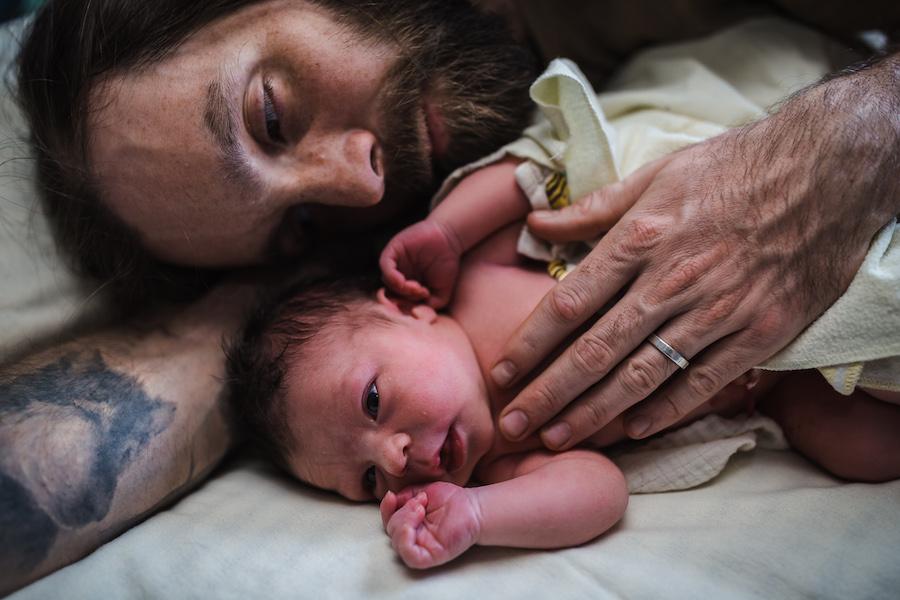Nothing in the world is more wonderful than the moment you find out that you are going to be a parent! Hopefully, this is something you’ve wanted, hoped for and worked toward together with your partner.
But this can also be the most frightening thing ever. Becoming a parent is a monumental, life-defining event. As a parent, you will follow the growth and development of a new person and, for a very long time, you will be one of the most important people in your child’s life.
Becoming a parent is an adjustment
For some people, parenthood comes naturally from the start. For most people, becoming a parent is more or less a major adjustment, one that progresses over time as your baby grows and acquires new needs. The age at which you have a child can also be significant to how you perceive parenthood and the kind of parent you become.
Remember your childhood
It’s common to reflect on your own childhood when you become a parent. It could be a good idea to consider both the things you liked and want to pass on to your children as well as the things you don’t want to pass on. Many parents-to-be benefit from thinking about the values they have today and other essential issues.
Talk expectations
It could also be a good idea for you and your partner to talk about your expectations as parents. What images come to mind in terms of mother and father roles? How do you imagine a family and how do you want your family to function? What do want to incorporate from your family of origin and what do you want to leave in the past? How did your parents, and your partner’s parents, collaborate as parents? How do you want to do it? Give some thought to whether there are other important people who you want to include in your children’s lives and who they are. Is there anyone you want to involve a little more than others and who can lend support and help?
Advice on becoming a dad/co-parent
Becoming a parent doesn’t just happen. You have to decide for yourself how you want it to happen. If you don’t, there’s a risk that others will do it for you—and then it won’t be on your terms. Here’s five pieces of advice:
1. Choose to become a parent
As the person who is not pregnant and who will not give birth or breastfeed, it’s easy to find yourself on the outside. It can also be convenient to handover the main responsibility to the mother unnecessarily often. If you want a good relationship to your child, you need to work for it. You decide whether you’re in or you’re out. You have to take a step forward and sign up. You choose.
2. Don’t just look at what parental leave costs, look at what it’s worth
Of all the parameters included in the estimate, it usually boils down to the financial situation. Who earns the most and who should stay at home? They say that many dads/co-parents listen to how their partners want to share parental leave, then they let their boss weigh in and then they take what’s left. If there is anything. Maybe time to ask yourself what you want? What do you gain from staying at home with your child?
3. Talk with your parents or friends who have children
Sure, you can read books and surf the internet for information. But nothing beats a real-life conversation with someone who has real-life experience. The opportunity to ask behind-the-scene questions. The opportunity to listen and watch people who are a little ahead of you and who have acquired some experience. Gain insight from good advice and knowledge. Take what you like and leave the rest.
4. Talk expectations with your partner
Talk about your expectations and those of your partner ahead of childbirth and parenthood. It’s easy to overlook each other and have expectations of each other without actually having listened and asked. Most of us come from families with their own customs and traditions that will now converge into a new family. Don’t forget to talk about how you want things to be while also listening to your partner.
5. Don’t carry around a hungry baby
As dad/co-parent, you will occasionally have to hand over a screaming, hungry baby to the mother if she is breastfeeding. It can be frustrating to feel like you’re not enough. But you can’t breastfeed. Do what you can instead. There’s no point in competing about feeding if you don’t have to. Learn what kind of nurturing you can give your baby, like changing diapers or clothes once your baby is full and content. If your baby is not breastfeeding, and is taking a bottle, then there’s no reason why you shouldn’t be just as involved in feeding as the mother.
